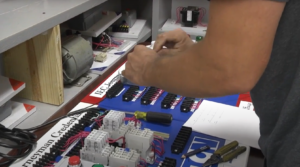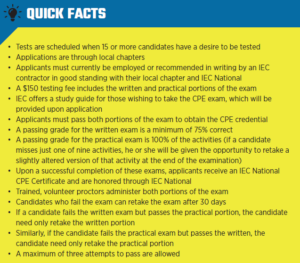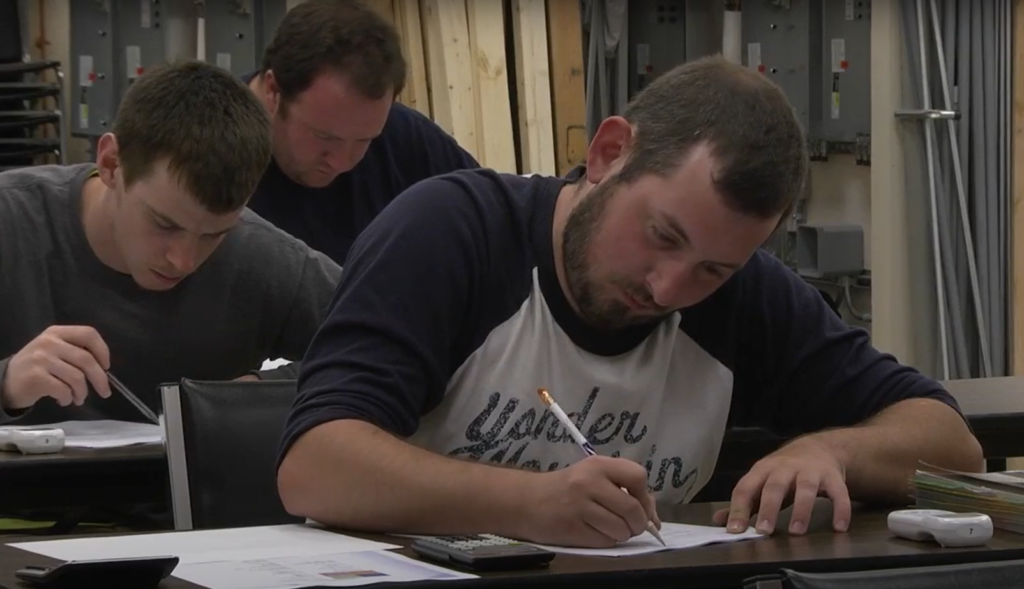As an electrical contractor, you want to surround yourself with highly competent and well-skilled electricians who will reflect your company’s  expertise each and every time they go to a jobsite. Your company’s brand and reputation demand it. That’s why you put your apprentices through IEC apprenticeship training, your workplace training, partner them with your proven, experienced staffers, and regularly assess their progress.
expertise each and every time they go to a jobsite. Your company’s brand and reputation demand it. That’s why you put your apprentices through IEC apprenticeship training, your workplace training, partner them with your proven, experienced staffers, and regularly assess their progress.
Why not take it a step further? What if there was a way to differentiate the best of the best professional electricians with an industry recognized, highly regarded distinction? There is – the IEC Certified Professional Electrician (CPE) credential.
What It Is
To obtain the prestigious IEC CPE credential, a candidate must pass a rigorous written exam that assesses knowledge of learned apprenticeship skills, as well as a practical portion that assesses application of that knowledge in a broad array of on-the-job situations.
 “Obtaining a CPE designation demonstrates a deep understanding and appreciation for the electrical industry,” says Dave Gilson, Tera-Byte Technologies, Inc. and chair of the IEC Apprenticeship and Training Committee. “Graduates of the four-year IEC Apprentice Training Program or Department of Labor journeymen who work for an IEC contractor are eligible to earn the distinction of being an IEC CPE.”
“Obtaining a CPE designation demonstrates a deep understanding and appreciation for the electrical industry,” says Dave Gilson, Tera-Byte Technologies, Inc. and chair of the IEC Apprenticeship and Training Committee. “Graduates of the four-year IEC Apprentice Training Program or Department of Labor journeymen who work for an IEC contractor are eligible to earn the distinction of being an IEC CPE.”
The exam itself is eight to nine hours – four hours the first day for the written exam and the rest of the hours the second day for the hands-on portion. Written questions and practical activities are based on the IEC four-year electrical apprenticeship program, which highlights the key concepts and competencies within the IEC curriculum and within the industry. Individuals who earn the CPE title have demonstrated excellence in all test areas.
IEC CPE Written Exam Test Information
1. Theory – 17 questions
2. Transformers – 6 questions
3. Motors and motor control circuitry theory – 13 questions
4. Grounding and bonding – 9 questions
5. Code review – 35 questions (breakdown below)
a. Service and service calculation – 7 questions
b. Special occupancies – 2 questions
c. Special equipment – 2 questions
d. Article 90 and Chapter 1 – 1 question
e. Branch circuits – 2 questions
f. Overcurrent protection – 3 questions
g. Wiring methods – 8 questions
h. Equipment for general use – 7 questions
i. Tables – 3 questions
6. Practical Competencies – 10 questions
Total Questions: 80-100 in a four-hour time frame
IEC CPE Practical Exam Test Information
1. Conduit bends
2. Wiring of a doorbell
3.Material identification (15-25 items)
4. Motor control problem
5. GFCI Problem
6. 3-way and 4-way switching problem
7. Transformer problems
Total Practical Activities: Nine (9)
Why It’s Important
The IEC CPE designation identifies electricians who have taken their professional training and qualifications one step above  the rest. By doing so, they illustrate to themselves, your company, and your customers that they are well prepared to successfully manage projects, represent your company in a positive light, and exceed customer expectations from their first day as a full-fledged electrician.
the rest. By doing so, they illustrate to themselves, your company, and your customers that they are well prepared to successfully manage projects, represent your company in a positive light, and exceed customer expectations from their first day as a full-fledged electrician.
Blake Behr, owner of Ridgeline Electrical Industries in Greenwood, IN, and active in the IEC Indy Chapter and IEC National, believes the CPE designation helps contractors by providing outside validation of learned skills.
“How do contractors know the difference between someone with or without skill?” says Blake in this video when discussing how to differentiate between potential new hires. “This exam was created to get away from the participation trophy mindset and show that there is a difference between journeymen. This exam is to highlight a journeyman’s logical problem solving, rapid problem solving, and spatial visualization.”
Electrical contractors also may choose to have their journeymen test for the CPE designation as a means of differentiating themselves and earning increased responsibility or earnings.
Ready to Get Started?
Contact your local chapter executive director to see if others in your area have requested an exam date and see if that works for your team. Chapter leadership then will work with IEC National to finalize arrangements.


